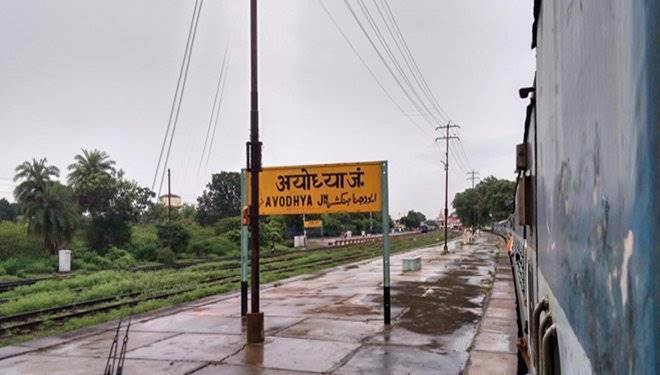The Central Sunni-Waqf board, the main Muslim party in the 134-year-old Ram-Janmabhoomi-Babri Masjid dispute has thrown in the towel by giving up its claim on the controversial land.
As the arguments on the Ram Mandir case finally concluded in the highest court of law in the country yesterday, the Waqf Board submitted a rather weak “settlement” to India’s Supreme Court while giving up its claims on the 2.77-acre land.
The Sunni board has submitted a proposal which states that the Muslim party is giving up claims on the disputed site in Ayodhya and that Places of Religious Worship Act 1991 should be made watertight which mandates a status quo in other places where Mosques were constructed by Islamic barbarians after demolishing Temples as they existed in 1947.
The board also demanded that the Government should take over the maintenance of around 22 mosques in Ayodhya.
The Places of Worship Act, 1991 enunciates that no dispute with regard to any mosque or other such religious places, which have been constructed after demolition of temples and are existing as in 1947, would be raised in a court of law. The Act, however, excludes the Ram Janmabhoomi-Babri Masjid dispute from its purview. Acceding to this settlement would mean that Kashi and Mathura would be out of bounds for the Hindu community to reclaim in the near future. However, two main stakeholders VHP-backed Ram Janmabhoomi Nyas and Ram Lalla deity did not participate in the negotiations and strayed away from this meek settlement offer, according to a TOI report.
As the Muslim-side realizes that they do not stand an iota of a chance of securing a favourable verdict in more than a century-old legal dispute, they are trying to find excuses to somehow escape or delay the clutches of the inevitable verdict.
A verdict in favour of the Ram Mandir in Ayodhya would only open the floodgates for restoring temples in Kashi, Mathura and various other sites where Mosques stand over ancient Hindu temples.
The Gyanvapi Mosque in Varanasi and the Shahi Eidgah Mosque in Mathura are some of the prominent mosques that might be the next target. The Vishva Hindu Parishad (VHP) has earlier said that it is likely to start a movement for Kashi Vishwanath and Mathura Krishna Janmabhoomi temples and that it is looking to legally pursue resolution in both disputes.
The Hindu side should be wary of the Places of Worship Act, 1991 that is being brought in by the losing side as a final resort to give a new spin to the story and therefore it should not be myopic in its eagerness to get a result over Ayodhya dispute whilst sacrificing all the other sites where temples have been desecrated and mosques built over them.
The Hindu side is negotiating from a position of strength, not weakness, and therefore it does not make sense to accede to this joke of a settlement.
A five-judge Constitution Bench headed by Chief Justice Ranjan Gogoi has been hearing the historic Ram Janmabhoomi-Babri Masjid title suit continuously for the last 40 days and had earlier set the deadline to finish arguments on 18 October.
The Ayodhya case is being heard by a Constitution Bench of Chief Justice of India Ranjan Gogoi and Justices SA Bobde, DY Chandrachud, Ashok Bhushan and Abdul Nazeer.
The final day of hearing started on a dramatic note as Rajeev Dhavan, the counsel from Muslim side tore evidential papers and maps which were handed over to him by the Hindu Mahasabha, one of the petitioners.
Dhavan had requested permission to tear the document up which evoked a rather sarcastic reply from CJI Gogoi who said, “You do what you want.” He had added, “You can shred it further.” The apparent antics of the lawyer clearly demonstrated that the Muslim side is frustrated and has no sense of direction.
While giving up the claim on land might seem like a goodwill gesture (which again is questionable as to why the Waqf Board did not do it before) but in reality, it is an attempt to take the moral high ground. This make-believe goodwill gesture has been made by the Sunni Waqf Board even as the Supreme Court has completed the proceedings in the dispute and reserved its judgement.
It is becoming clear as a day that the top court is moving towards pronouncement of judgment in the matter. It was only hopelessness that triggered the Muslim side to give up and come up with a futile offer of giving up claim over the Ram Janmabhoomi site and come across as the victim and one who took the moral stand.
Meanwhile the chant of “Ayodhya toh bas jhaanki hai, Kashi Mathura abhi baaki hai.” has already started doing the rounds.



























